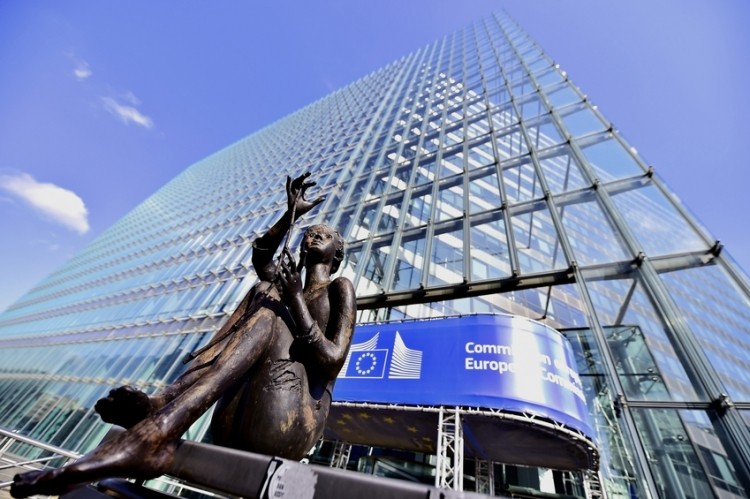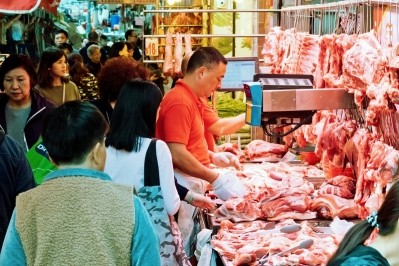EU food industry issues COVID-19 jobs plea: ‘The only way we will overcome the crisis is with more support’

In a joint statement released yesterday (26 March), the European Federation of Food, Agriculture and Tourism Trade Unions (EFFAT) and FoodDrinkEurope (FDE), which represents food businesses and employers, said that the two organisations had ‘come together’ to press for an urgent response to the COVID-19 pandemic.
Expressing concern and the ‘deepening pubic health crisis across Europe and beyond’, the organisations also pointed to fears over the economic impact the disease – and measures designed to stop its spread – will have.
“We are concerned about the potential for a serious and sustained global economic downturn and the impact this will have on the workforce,” they noted.
The European food and drink industry employs 4.7 million people across 294,000 businesses.
“We are indebted to these workers and their continued dedication to doing their jobs during the COVID-19 pandemic. Despite the emergency, the food sector does not and will not stop. For this reason, the workforce needs to be supported by public authorities,” the industry representatives urged.
EFFAT and FDE ‘welcomed’ initiatives undertaken by the European Commission, including the proposal to activate the general escape clause of the Stability and Growth Pact (SGP). Once endorsed by the Council, this would allow Member States to implement measures to deal with the crisis, while departing from the budgetary requirements that would normally apply under the European fiscal framework.
Nevertheless, the statement continued, further action must be galvanised.
“More needs to be done to provide enhanced health protection for workers and economic support for struggling businesses.”
What interventions does industry want?
FDE and EFFAT called for four policy measures to alleviate the mounting financial crisis.
First of all, they want increased support for the workers that are maintaining food supply. Recognising food industry personnel across the food chain as ‘essential’, they called for ‘effective support measures such as childcare’ and – where necessary – state wage compensation if workers are temporarily suspended from work. “The Commission must encourage Member States to recognise the needs of the industry's 4.7 million-strong workforce, who cannot stay at home if we are to keep the food chain functioning.”
Access to safety equipment is also key to maintain a functioning food system, FDE and EFFAT stressed. “As food supply is an essential value chain, national governments and the EU institutions should help companies operating in the food and drink sectors in finding personal protective equipment for workers. In this respect, the establishment of centralised purchasing systems should be accelerated to avoid unfair competition,” the organisations suggested.
Harmonised protocols for food safety workers should be established, they argued. “We urge the Commission to provide EU guidelines to Member States to establish harmonised protocols for food sector workers to continue their work safely. The protection of food workers’ health should be a priority.”
Finally, the union and industry association flagged the need to support the ‘99%’ of food businesses that are SMEs. These businesses are already being negatively impacted by the shutdown of the hospitality industry across Europe.
“We welcome the flexibility around the implementation of the state aid rules and urge the Commission to develop together with Member States comprehensive emergency measures for the food sector, to maintain jobs and to help re-build the economic sustainability of the sector over the long term. Moreover, unused structural funds and other EU funds should be used to support Member States in ensuring financial and income support for workers affected by unemployment or suspension from work, including non-standard workers and workers employed in the subcontracting chains.”
Leaders fail to agree common response
“Europe is facing an unprecedented fight against coronavirus that has changed the way we live in our society, the way we interact with our loved ones and the way we work together. The only way we will be able to overcome this crisis is with more support and solidarity among Member States,” the food industry associations stressed.
However, their call came as EU leaders failed to agree a common economic response to the COVID-19 pandemic.
In a meeting yesterday, the leaders of Member States gave themselves another two weeks to develop new financial instruments after Spain and Italy called for greater solidarity.
The three-hour summit took place over video-conference and ended with leaders inviting "the Eurogroup to present proposals to us within two weeks".




















